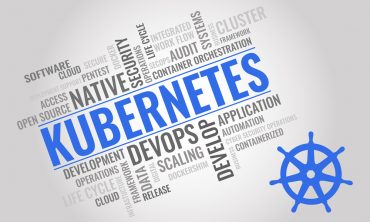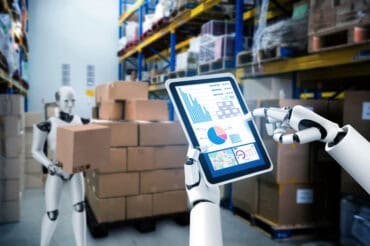
Use of cloud computing in hospitality continues to evolve, offering new ways to ingest, process, and protect customer data.
Cloud computing gets a lot of hype in the tech field or processing-intensive industries like research and development. Heavily consumer-facing industries are undergoing an entire evolution thanks to cloud computing, however. And it’s hospitality where consumers may see some of the most significant changes.
Advantages of the cloud
Cloud-based solutions are changing the face of the hotel industry. Just like databases in the early 90s allowed hotels to manage large numbers of reservations and requests efficiently, cloud solutions offer the chance to remove common frustrations and frictions across the entire ecosystem.
Hoteliers can:
- Reduce cost: Cloud services allow hospitality industries to pay only for the services they need. Cloud computing also puts smart building management into reality, as well as facilitating projects and maintenance.
- Improve experiences: Cloud services also provide flexibility in services by allowing staff to operate from anywhere, as an example. Guests also receive the same flexibility to manage their needs from anywhere.
- Build responsive infrastructure: Disruption can have far-reaching consequences. Suppose organizations need to work remotely, shut down or open up certain operations, change supply lines or alter operations in any way. In that case, cloud services allow a smooth transition with a central line of communication.
- Personalize guest offers: Captured data offers a wealth of information. Cloud computing helps hoteliers and other hospitality organizations provide customized experiences and responsive, convenient services.
Moving to cloud operations also allows the hospitality industry to scale. It provides a way for companies to work with multiple vendor solutions if necessary and remove the friction required for building disruption-proof operations.
See also: 5 Ways Data Analytics Can Help the Hotel Industry
Obstacles to cloud computing in hospitality
One of the biggest obstacles remaining for cloud computing is perception.
Cloud reliability
The hospitality industry wants to know that they aren’t adopting another solution that will prove obsolete in just a few years. With older systems, rigidity causes issues in connectivity and service. When the internet goes out, or a system goes down, operations cease.
Cloud services reduce ways that interruptions can derail operations. Staff can work from anywhere, change devices if necessary, and mitigate the risk of lost or unsecured information. Connectivity through 3G-enabled devices can take over in the event of disrupted internet.
Even if it’s no fault of the establishment, customers will remember frustration reconciling a bill or having to wait a long time for check-in. The cloud adds a layer of protection against minor hiccups in their experience.
Cloud Security
Shifting to cloud storage understandably causes some anxiety about where the information resides and who has access. Luckily, with the right cloud services, security is built-in.
On-premises solutions require frequent updating and an in-house team familiar with all security best practices. In an ever-changing tech landscape, that can be difficult for companies that don’t have a primary tech focus. Cloud services can offer the full security expertise with automatic updates that the hospitality industry needs to keep information secure.
What does cloud computing look like in hospitality?
Cloud computing can offer a seamless experience to customers while reducing obstacles to service from the staff side. This transformative experience can happen in stages.
- Pre-arrival: Cloud services capture data from the moment guests first interact with the company or service. The hotel, for example, can make a note of what services or rooms the customer looked at and offer suggestions for upgrades.
- Arrival: When guests arrive, their information is saved and ready for each member of staff. This offers personalization right from the beginning.
- The stay: Knowledge of previous stays provides insight into customer preferences. A hotel may address mistakes right from the beginning or identify missed opportunities. Personalization continues with upsell offers that happen as the customer continues to interact with the business.
- Departure: Not only does the cloud enable a frictionless checkout experience with no surprises, but it can also follow up afterward to continue to nurture relationships and reward loyalty.
- Preparation: Following guest stays, businesses can enable targeted follow-up. Cloud computing can also handle things like predictive maintenance to reduce downtime, especially during peak seasons.
The cloud provides a real end-to-end solution for hospitality that brings back the excitement of travel. In an industry facing stiff competition, this type of solution could be a differentiator for success.
There have been some high-profile examples of both storied businesses and industry startups leveraging cloud computing to their advantage.
Some fascinating examples
It’s a simple concept; a suite of locks powered by a simple key card with no need to replace locks or worry about lost keys. The only problem is that once batteries run dead, it leaves customers truly frustrated right at the start of their stay.
The Hilton’s Room Lock Problem
Replacing batteries and maintaining those locks in a hotel with hundreds of rooms is difficult to keep up with. The Hilton made use of cloud computing to monitor all locks within its properties. Managers can sweep in change locks before guests notice.
It’s only one instance of the Hilton’s shift to cloud computing. It has digitized rooms and created a type of mission control for everything from entertainment to ordering room service.
The American Airlines Integration Challenge
American Airlines faced challenges in integrating legacy systems into a single cohesive customer experience. The airline company used IBM solutions to revolutionize their infrastructure into a cloud-native series of micro-services.
The Airline was able to improve customer service by providing an instant response to various customer requests and reducing wait times. The fluidity of the cloud-native system ensures that the companies can release new apps and services faster with a more efficient roll-out.
Building cloud solutions for the hospitality industry
It’s not a matter of if but when companies will adopt these solutions within hospitality. Companies can choose a provider familiar with the nuances required for hospitality excellence and reap the benefits of an end-to-end experience.
The space continues to evolve, offering new ways to ingest, process, and protect customer data. And it’s this free flow of data that will allow the hospitality industry to move into the new era of the industry.






























